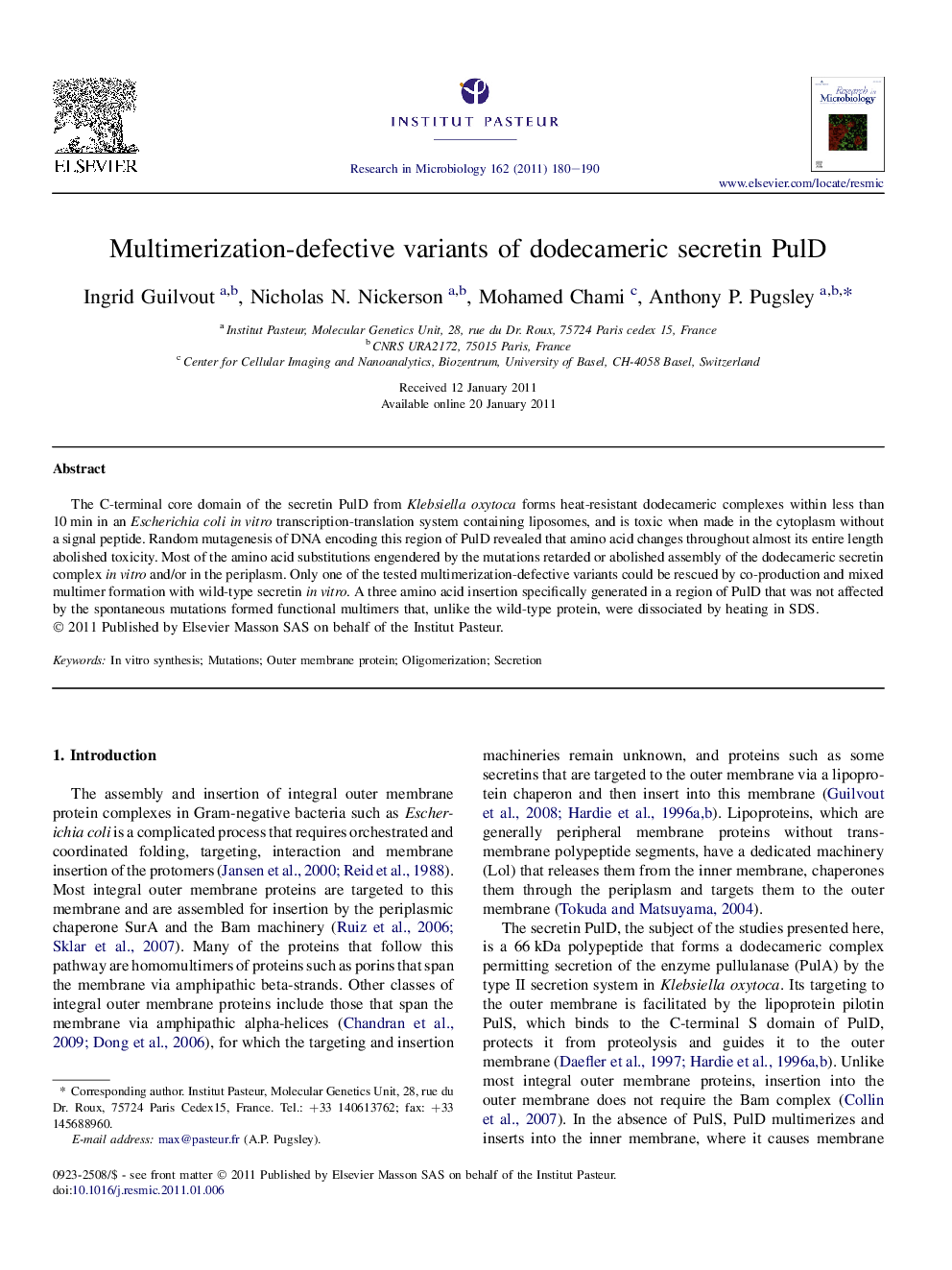| Article ID | Journal | Published Year | Pages | File Type |
|---|---|---|---|---|
| 6288187 | Research in Microbiology | 2011 | 11 Pages |
Abstract
The C-terminal core domain of the secretin PulD from Klebsiella oxytoca forms heat-resistant dodecameric complexes within less than 10Â min in an Escherichia coli in vitro transcription-translation system containing liposomes, and is toxic when made in the cytoplasm without a signal peptide. Random mutagenesis of DNA encoding this region of PulD revealed that amino acid changes throughout almost its entire length abolished toxicity. Most of the amino acid substitutions engendered by the mutations retarded or abolished assembly of the dodecameric secretin complex in vitro and/or in the periplasm. Only one of the tested multimerization-defective variants could be rescued by co-production and mixed multimer formation with wild-type secretin in vitro. A three amino acid insertion specifically generated in a region of PulD that was not affected by the spontaneous mutations formed functional multimers that, unlike the wild-type protein, were dissociated by heating in SDS.
Related Topics
Life Sciences
Immunology and Microbiology
Applied Microbiology and Biotechnology
Authors
Ingrid Guilvout, Nicholas N. Nickerson, Mohamed Chami, Anthony P. Pugsley,
